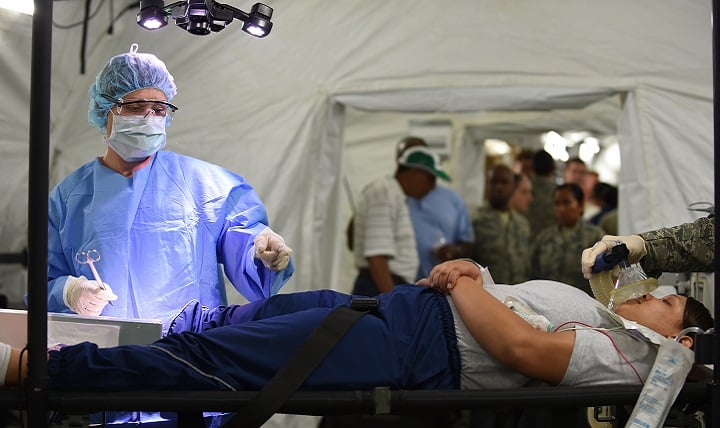A new survey of anti-fraud professionals from around the world has found that whistleblower suppression is the most significant “fraud-related factor” in the spread of Covid-19.
The anti-fraud consulting firm Nemexis surveyed anti-fraud professionals in 58 countries over two weeks in April to learn how fraud impacted pandemic–related healthcare in their country. Respondents from one-quarter of the countries reported suppression of whistleblowers who gave early warning of the virus.
The report’s authors concluded that successfully fighting the Covid-19 pandemic requires an “aggressive anti-fraud strategy” that includes “whistleblower channels aimed at early warning whistleblowers.”
“Silencing whistleblowers means that problems with delivering COVID-19 healthcare services are being left unaddressed,” said National Whistleblower Center Executive Director John Kostyack. “We cannot allow a single individual to die of COVID-19 because of the suppression of healthcare industry whistleblowers.”
The survey assessed the impact of fraud and corruption in healthcare delivery during the COVID-19 crisis from April 4 to April 22, 2020. The report found fraud involving personal protective equipment (PPE) the most prevalent, appearing in 81% of the countries surveyed. Black markets were reported in 62% of countries, followed by embezzlement, faulty equipment, and cyber attacks. The survey found 80% of respondents thought that fraud and corruption’s impact on their country’s healthcare system had been “very important” (59%) or “important” (21%).
The Nemexis survey echoes the findings of a recent report by the OECD Working Group on Bribery that also called on international governments to protect whistleblowers. These calls come as the European Union passed a new directive on whistleblower protection, under which each member country must pass whistleblower protection laws.
American whistleblower laws are considered the gold standard for their effectiveness in stopping fraud. Potential healthcare whistleblowers may not know, however, that many of these laws have transnational jurisdiction. For example, the Foreign Corrupt Practices Act prohibits any company traded on US stock exchanges from bribing foreign officials, even if the bribe doesn’t take place on US soil. “The Dodd-Frank Act’s qui tam whistleblower provisions created a revolution in the detection and successful prosecution of securities frauds,” says whistleblower attorney Stephen M. Kohn.
The Dodd-Frank Act created whistleblower programs for the SEC and Commodity Futures Trading Commission, which regulate securities and commodities traded in the United States, regardless of where in the world traders are located. The False Claims Act, which can prevent fraudsters from selling ineffective medicines, failing to perform services, or obtaining reimbursements for unnecessary healthcare services, covers any company or individual selling to the US federal government. Whistleblowers are entitled to financial rewards under all these programs for cases that collect more than $1 million in penalties, including non-US citizens.
Until national governments enact stronger whistleblower protections, US laws may be the world’s best weapon against Coronavirus fraud.
